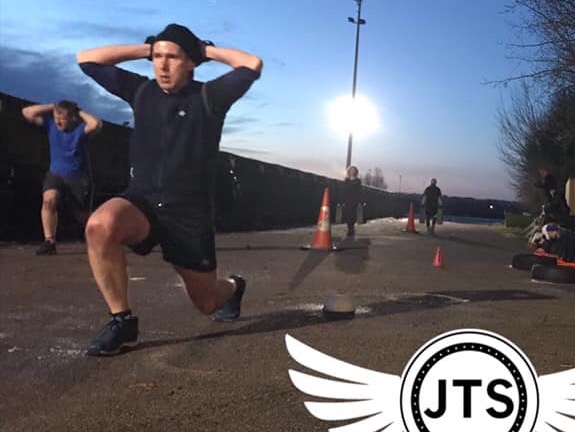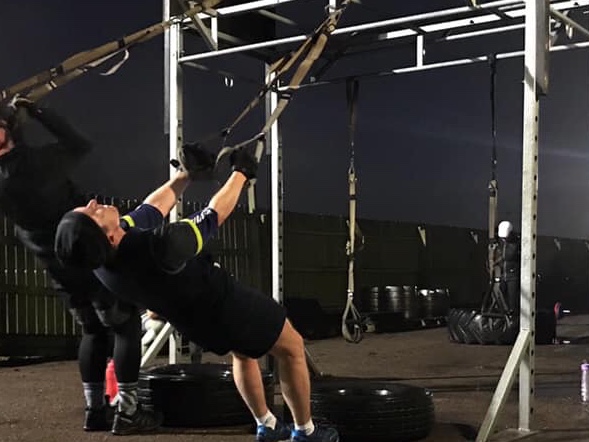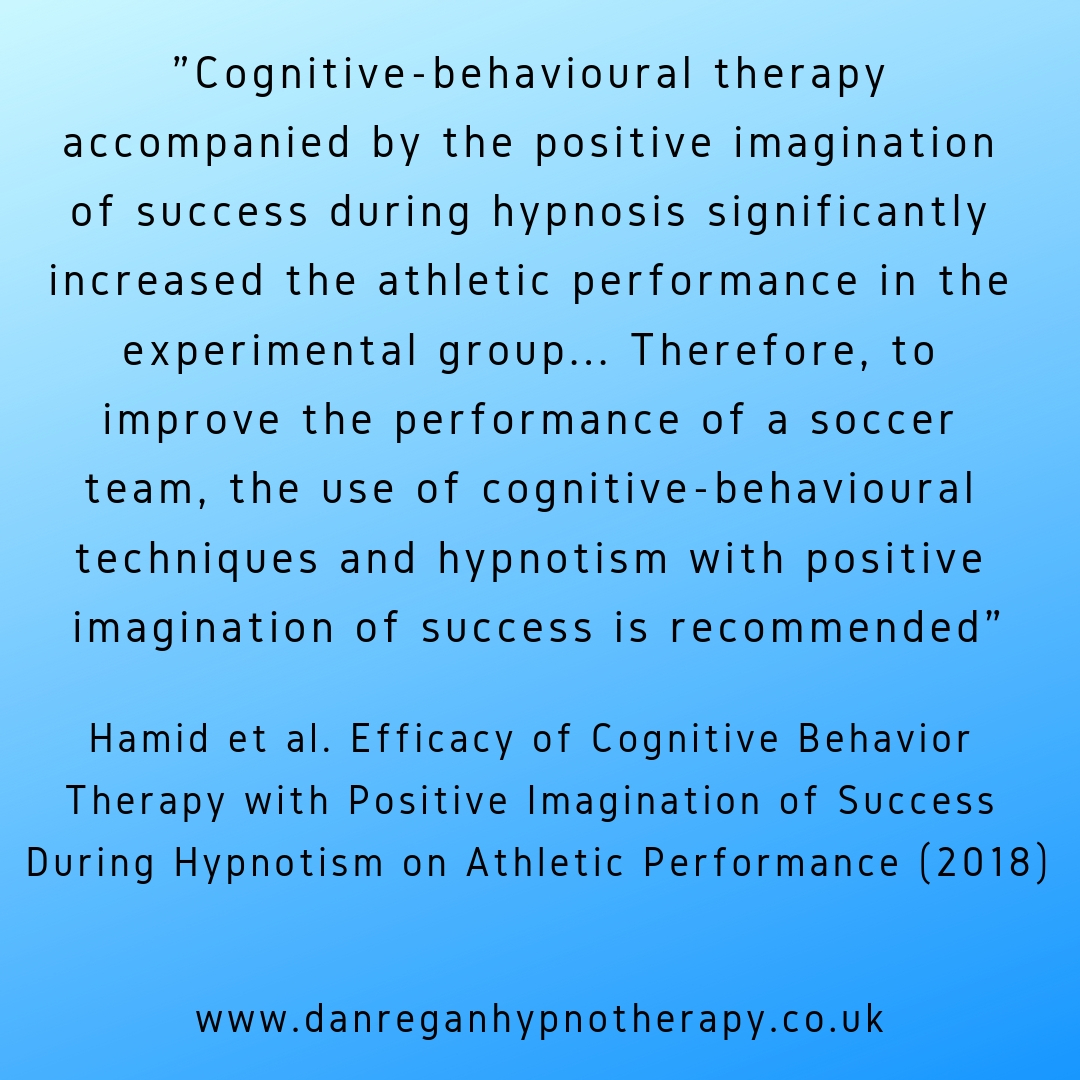Required
Sports Psychology: The Impact of Hypnosis on Athletic Performance
Sports Psychology: The Impact of Hypnosis on Athletic Performance
As I write this, the weather here in the UK seems to have turned well and truly into a very cold and bitter winter. As I made my way to bootcamp this morning, the car thermometer was trying to kid me that it was one degree, yet clearly my car doesn’t allow for the cold Eastern wind that sweeps across the Fens. Roll on Spring!
Today was a good affair at camp where I felt pretty focused and kept my mind on each set, rather than allowing my thoughts to wander to what the next station entailed. Six minutes non-stop on each of six stations (each with two alternating exercises) certainly does require mental focus and the ability to shut up that nagging inner voice that wants you to slow down, or even better, stop and fall into a heap where you no longer need to carry your own body weight.
I work with a lot of athletes from all sorts of sports and with all sorts of personal goals who tend to have one factor in common: all of them want to perform to their best in their chosen sport. That might mean aiming to win, shooting for a personal best or wanting to improve focus, concentration and confidence. In all these cases, hypnotherapy has many tools that can beneficially aid them.
The other day I came across a wonderful research paper on this very subject of sports psychology and performance. This research set out to evaluate the efficacy of cognitive behavioural therapy with positive imagination of success during hypnosis on athletic performance. In this article I’ll cover their findings.
But before that, and to show that I do turn up to my JTS Fitness bootcamp at 6.30am in the morning, here’s a photo of me desperately trying to encourage my arm muscles to lift me for another rep (or more likely I was wondering whether it would hurt more to pull myself up or to just let go and hit the ground…after the initial impact, just think how nice it would be to lie down for a few seconds…!!).
And here’s another one on a different day when it may have been super icy that morning with a touch of snow about but minus temperatures aren’t any reason to not get up and get to camp are they?!!

Cognitive Behavioural Therapy & Hypnosis and Increasing Athletic Performance
When you invest time, money, blood and sweat into a sport, whether professionally or recreationally, you want to perform as best as you can. What that best performance looks like can naturally differ by sport and by individual. Yet most sports people concentrate much, much more on the physical side of their training and preparation than the psychological aspects.
And that lack of investment in their sports psychology can lead to frustration, disappointment, anxiety, lack of self-confidence, fears and stresses getting in the way of training and performing well.
In fact, there is research and evidence that reducing anxiety and stress around your training and performance, often by using hypnosis, positive imagination and relaxation, can improve your performance.
For example, Barker et al (reference below) studied the effects on self-efficacy and soccer performance of collegiate soccer players who were allocated to either a hypnosis group or a video attention-control group (who watched edited videos of professional soccer games). They found that, after the intervention, the hypnosis group were more efficacious and performed better than the control group (and continued to do so at the four week follow up stage). Thus the hypnosis enhanced and maintained self-efficacy and performance of the soccer players.
In other research, Pates et al (reference below) looked at the effects of hypnosis on flow states and three-point shooting in five basketball players. The study involved relaxation, imagery, hypnotic induction, hypnotic regression and trigger control procedures. The results showed that a hypnosis intervention can improve three-point shooting performance in basketball players and increase feelings and cognitions that are associated with flow.
And there are many other examples where hypnosis has helped athletes to improve performance and self-belief in their chosen sporting field.
In the recent research paper I have been reading, published in December 2018, the researchers set out to evaluate the efficacy of cognitive-behavioural therapy, accompanied by positive imagination of success during hypnosis on athletic performance.
The researchers divided football players into two groups. One group received eight sessions of group cognitive behavioural therapy with hypnotism and positive imagination (the experimental group) and the other group (the control group) did not receive any intervention. The researchers looked at three standard football items, shoot to the target, fixed pass and moving pass both before and after the intervention.
During the hypnosis, “positive imagination of success was carried out around the issues such as mental image of success (winning), excellent performance on mental shoots and success in competition, and the harmony between mind and body of the athletes.” The results showed that the performance of the cognitive behavioural therapy group with hypnosis significantly increased in comparison with their pre-test scores and compared to the control group.
Their conclusion was that, “Cognitive-behavioural therapy accompanied by the positive imagination of success during hypnosis significantly increased the athletic performance in the experimental group in three items of shoot to the target, fixed pass and moving pass. Therefore, to improve the performance of a soccer team, the use of cognitive-behavioural techniques and hypnotism with positive imagination of success is recommended.”
Very impressive results there I’m sure you’ll agree. Thus by making use of factors such as dealing with automatic thoughts and beliefs, developing self-confidence, focusing on success and developing the ability to remain mentally calm (and so prevent excessive anxiety), an athlete can train and perform to the best of their ability (and very likely you will also derive more pleasure, satisfaction and fulfilment from your sport).
I know that my best performances at bootcamp come when I get focused and in that zone where I can feel confident and have belief in my ability. When I can be in the present moment and just focus on each repetition and each exercise then the doubts and that niggling little inner voice don’t get a look in. And certainly when I’ve run long distance races, that ability to stay confident, motivated and relaxed is what gets me to the finish line.
The research strongly supports the use of hypnosis to enhance performance so if you are looking to do just that, improve your performance and belief in your own capability, then this could be the very thing that you need.
To your success,
Dan Regan
Hypnotherapy in Ely & Newmarket
Do you want to learn more about how sports psychology and sports hypnosis could help you improve your performance? You can read more of my articles here: Sports Psychology Articles
And when you want to work on reducing anxiety, developing confidence and improving your sporting performance then you can now book your Complimentary Hypnotherapy Strategy Session with Dan now: Initial Consultation
You can find out what other people have said after their hypnotherapy sessions with Dan here: What People Say
And check out these powerful hypnosis downloads that can start helping you right away: Hypnosis Downloads
References:
Hamid N , Abdoli R, Shahroie A. Efficacy of Cognitive Behavior Therapy with Positive Imagination of Success During Hypnotism on Athletic Performance, Hormozgan Med J. 2018 ; 22(4):e86481. doi: 10.5812/hmj.86481.
Barker, Jamie & Jones, Marc & Greenlees, Iain. (2010). Assessing the Immediate and Maintained Effects of Hypnosis on Self-Efficacy and Soccer Wall-Volley Performance. Journal of sport & exercise psychology. 32. 243-52. 10.1123/jsep.32.2.243.
Pates, John, Andy Cummings, and Ian Maynard. “The effects of hypnosis on flow states and three-point shooting performance in bastketball players.” The Sport Psychologist16.1 (2002): 34-47.
Get Your Copy Right Now…
Subscribe to Dan’s Digest filled with tips, strategies and techniques and get instant access to your free rapid relaxation hypnosis audio track.
Enjoy feeling and being more mentally calm and physically relaxed right now:






0 Comments